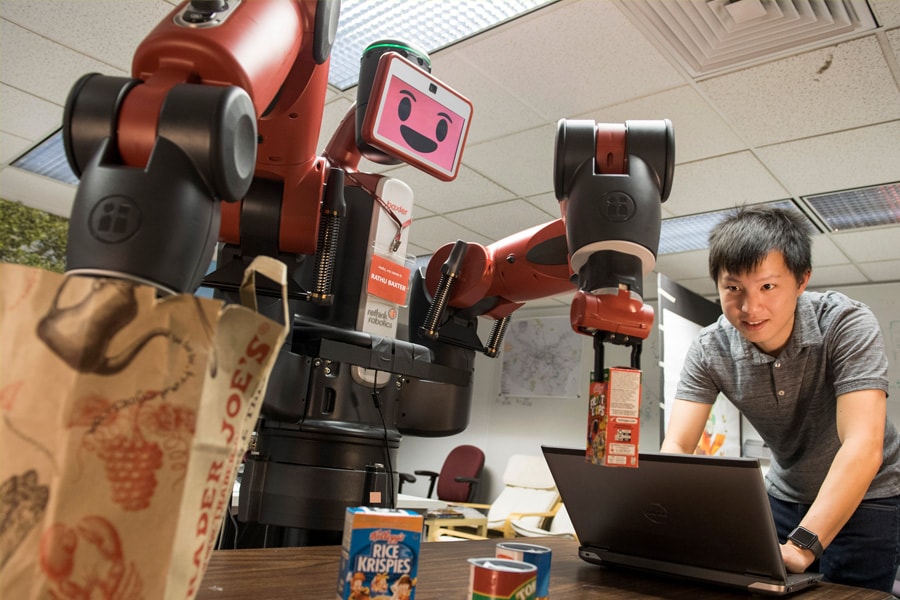
Researchers Seek To Create Self-Assessing Robots
Autonomous systems need to predict, monitor, judge their own performance
In a parallel to how "The Little Engine That Could" once chanted, "I think I can, I think I can," university researchers sponsored by the Office of Naval Research are working to impart robots and other autonomous systems with the ability of self-assessment.
Robots now are ill-equipped to predict how well they can perform a task, or to sense if a task is going well, or even to know whether they did a good job once a task is completed, said Aaron Steinfeld, associate research professor in Carnegie Mellon University's Robotics Institute.
People use a number of tactics to judge whether or how well they can do something, whether it is throwing a baseball, turning a valve or drilling a hole in a wall. As robots become increasingly autonomous, they will need this ability, as well, Steinfeld added.
Researchers from Carnegie Mellon, Brigham Young University, Tufts University and the University of Massachusetts Lowell have joined together in a five-year, $7.5 million Multidisciplinary University Research Initiative program, to develop methods and metrics for machine self-assessment.
This self-assessment could be as simple as a robot being able to detect whether a task was completed satisfactorily, or could include prediction and evaluation of proficiency. In some cases, it might include a robot providing an explanation to a human about its performance.
"You'd like the robot to be able to explain why it can or why it can't do a task," Steinfeld said, such as a self-driving car telling its occupants why it can't drop them off at their requested destination. Identifying a lack of knowledge, dexterity, or strength could enable a robot to work more efficiently with human partners.
Researchers will test self-assessment approaches using dexterous search tasks for robots, such as maneuvering limbs to investigate obscured items, manipulating objects to reveal contents and adversarial manipulation, said Holly Yanco, a professor of computer science at UMass Lowell.
Such search tasks can be readily scaled up to applications such as robots deployed for emergency repairs, micro-drone swarms sent to map buildings, and urban search and rescue, she added.
In addition to Steinfeld and Yanco, the researchers include Jacob Crandall, associate professor of computer science, and Michael Goodrich, chair of computer science, both of Brigham Young; Matthias Scheutz, professor of cognitive and computer science at Tufts; and Henny Admoni, assistant professor of robotics at CMU. Reid Simmons, research professor of robotics and computer science at CMU, will join the team this fall. Extensive testing will be performed at Carnegie Mellon's Robotics Institute and UMass Lowell's New England Robotics Validation and Experimentation (NERVE) Center.
The project was one of 24 awards issued this year by the Department of Defense's highly competitive MURI program.